Many of the designations used by manufacturers and sellers to distinguish their products are claimed as trademarks. Where those designations appear in this book and Da Capo Press is aware of a trademark claim, the designations have been printed in initial capital letters (e.g., Excedrin).
Instructions on the abdominal-thrust maneuver for choking () have been adapted from the National Safety Council publication Family Safety and Health, Winter 19861987.
The drawing on fishhook removal from the foot () is adapted from George Hill, Outpatient Surgery (Philadelphia: Saunders, 1973).
The decision chart on alcoholism () has been adapted from J. A. Ewing, Detecting Alcoholism: The CAGE Questionnaire, Journal of the American Medical Association 252 (1984): 1905.
Information on substance abuse () has been adapted from Donald M. Vickery, Lifeplan: Your Personal Guide to Maintaining Health and Preventing Illness (Reston, VA: Vicktor, 1990).
The table on has been adapted with permission from G. J. Pfeiffer, Taking Care of Today and Tomorrow (Reston, VA: The Center for Corporate Health Promotion, 1989).
The table on has been adapted from Howard W. Ory, Mortality Associated with Fertility and Fertility Control: 1983, Family Planning Perspectives 15, no. 2 (March/April 1983).
Copyright 2017 by James F. Fries and Donald M. Vickery
All rights reserved. No part of this publication may be reproduced, stored in a retrieval system, or transmitted, in any form or by any means, electronic, mechanical, photocopying, recording, or otherwise, without the prior written permission of the publisher. Printed in the United States of America. For information, address Da Capo Press, 53 State Street, 9th Floor, Boston, MA 02109.
Design and production by Eclipse Publishing Services
Set in 10.5 point New Baskerville
Cataloging-in-Publication data for this book is available from the Library of Congress.
First Da Capo Press edition 2017
ISBN: 978-0-7382-1973-8 (paperback)
ISBN: 978-0-7382-1974-5 (e-book)
LCCN: 2017946578
Published by Da Capo Press
www.dacapopress.com
@DaCapoPress
Note: The information in this book is true and complete to the best of our knowledge. This book is intended only as an informative guide for those wishing to know more about health issues. In no way is this book intended to replace, countermand, or conflict with the advice given to you by your own physician. The ultimate decision concerning care should be made between you and your doctor. We strongly recommend you follow his or her advice. Information in this book is general and is offered with no guarantees on the part of the authors or Da Capo Press. The authors and publisher disclaim all liability in connection with the use of this book.
E3-20170802-JV-PC
Take charge of your health! If you dont, who will? There is no better guide to the path and no more honest assessment of medical ills than you will find in this book. It not only covers maintaining your health but also prepares you for managing new problems that come along. Take Care of Yourself leaves you well prepared to take charge!
C. Everett Koop, MD, Former Surgeon General, U.S.
Since its initial publication, Take Care of Yourself has probably done more for the health and peace of mind of Americans than any other book. As a bonus, it helps to curb rising health care expenditures.
Victor R. Fuchs, Henry J. Kaiser Jr., Professor Emeritus, Stanford University; author of Who Shall Live? Health, Economics and Social Choice
Take Care of Yourself is a book of pure genius: clear, concise, authoritative, trustworthy. It provides the foundation of our new consumer-driven health care system.
Regina E. Herzlinger, Professor, Harvard Business School; author, Consumer-Driven Health Care
Take Care of Yourself is a must for every person with a new symptom who wonders, What do I do now? The advice is clear and sensible. This book helps me to self-manage my health conditions and assures me that I am making the right decisions. It is a must-have book for my health care bookshelf.
Kate Lorig, RN, Dr. PH, Professor, Stanford Patient Education Research Center
There are a remarkable number of award-winning wellness programs that use Take Care of Yourself to improve employee health and reduce the need for medical care. Its no wonder: the book is a lifesaver. It tells you so much you can do to address your own health problems immediately, effectively, and efficiently.
Carson E. Beadle, Chairman, The Health Project
Please take a moment to put these numbers together here so that you can find them fast when you need them.
Emergency Room
Poison Control Center
911/Ambulance
Family Physician
Pediatrician
Specialist (specify)
Dentist (office)
Dentist Emergency Number
Hospital (main number)
The Arthritis Helpbook
by Kate Lorig and James F. Fries
Taking Care of Your Child
by Robert H. Pantell, James F. Fries, and Donald M. Vickery
This book is strong medicine. It can be of great help to you. The medical advice is as sound as we can make it, but it will not always work. Like advice from your doctor, it wont always be right for you. This is our problem: if we dont give you direct advice, we cant help you. If we do, well sometimes be wrong. So here are some qualifications:
 If youre under the care of a doctor and receive advice contrary to this book, follow the doctors advice; the individual characteristics of your problem can then be taken into account. This is especially important if you have been diagnosed with a chronic condition.
If youre under the care of a doctor and receive advice contrary to this book, follow the doctors advice; the individual characteristics of your problem can then be taken into account. This is especially important if you have been diagnosed with a chronic condition.
 If you have an allergy or a suspected allergy to a recommended medication, check with your doctor, at least by phone, before following the advice in this book.
If you have an allergy or a suspected allergy to a recommended medication, check with your doctor, at least by phone, before following the advice in this book.
 Read medicine label directions carefully; instructions vary from year to year, and you should follow the most recent.
Read medicine label directions carefully; instructions vary from year to year, and you should follow the most recent.
 If your problem continues to concern you beyond a reasonable period, you should see a doctor. We suggest for most problems what a reasonable period might be.
If your problem continues to concern you beyond a reasonable period, you should see a doctor. We suggest for most problems what a reasonable period might be.
Take Care! With this traditional parting phrase, we express our feelings for our friends and show our priorities. When I see you again, be healthy. Keep your health. Not Be rich! or Be famous! but Take care of yourself!
This book is about how to take care of yourself. For us, this phrase has four meanings:
First, take care of yourself means maintaining the habits that lead to vigor and health and that postpone aging. Your lifestyle is your most important guarantee of lifelong vigor, and you can postpone most serious chronic diseases by making the right choices about how to live. You can prevent most bad health.
Second, take care of yourself means periodic monitoring for those few diseases that can sneak up on you without clear warning, such as high blood pressure, cancer of the breast or cervix, glaucoma, or dental decay. In such cases, taking care of yourself may mean going to a health professional for assistance.



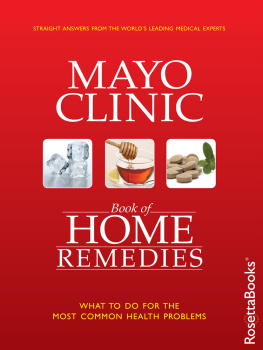

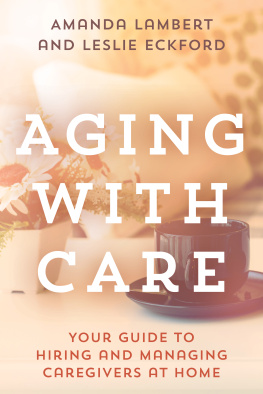
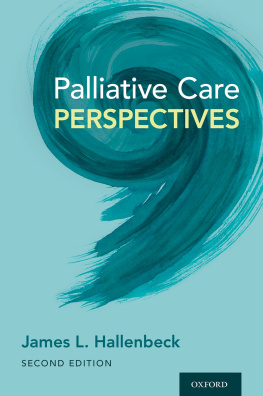
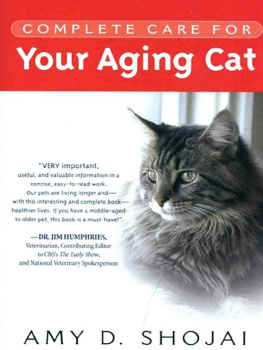
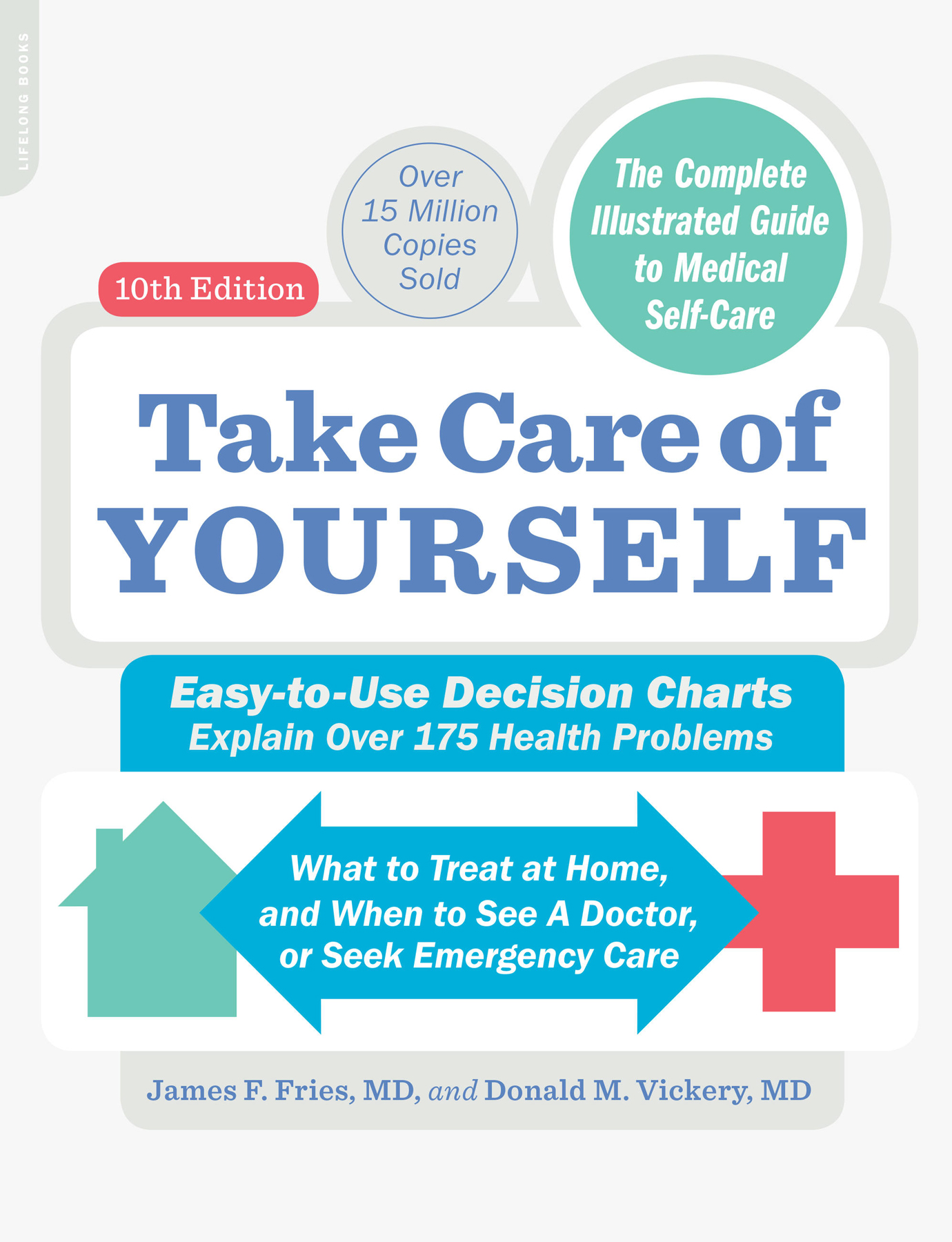
 If youre under the care of a doctor and receive advice contrary to this book, follow the doctors advice; the individual characteristics of your problem can then be taken into account. This is especially important if you have been diagnosed with a chronic condition.
If youre under the care of a doctor and receive advice contrary to this book, follow the doctors advice; the individual characteristics of your problem can then be taken into account. This is especially important if you have been diagnosed with a chronic condition.